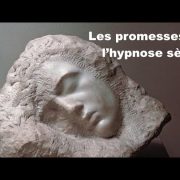One can confidently say Federico García Lorca is one of the best-known Spanish writers worldwide. This is due to the themes he dealt with throughout his work, as well as his personality, which is apparent in every single one of his poems. Today’s article is a compilation of some of his most significant phrases.
Before getting into them, we’d like to point out that his tragic murder in 1936 is another thing people remember him by. His works, such as Libro de Poemas (In English: Book of Poems) and Romancero Gitano (In English: Gypsy Ballads) were highly broadcast and are still relevant. Continue reading to discover some phrases that’ll leave you thinking for days.
Wonderful phrases by Federico García Lorca
1. Life is kind
“Cast away sadness and melancholy. Life is good, short in days and now is the only time to enjoy it.”
This phrase Federico García Lorca is a reminder of one of the best-known Latin proverbs: carpe diem. The poet is definitely aware of life’s challenges and misfortunes and yet emphasizes the importance of enjoying oneself.
People often become negative and only know how to complain. They shut down everyone and everything else and perceive everything around them as bad. Thus, they must try to read some articles, such as « A decrease in memory complaints id associated with mood improvement: A twelve-month follow up-study of depressed patients », to know they should enjoy more and complain less.
2. Crying is necessary
“I want to cry because I feel like it.”
Federico García Lorca says it clearly and simply. One shouldn’t try to contain or control their crying. This is because this expression doesn’t require justification and he expresses it with only seven words. It’s a powerful lesson.
How many times have you cried and someone around us tried to console you by telling you not to cry? As you can see, it’s important to acknowledge this emotion and let it out. You may cry out of sadness, out of joy, because you’re feeling blue, or perhaps because you’re thinking about a lost loved one. However, you can (and should) definitely cry for no reason at all.
3. Keeping quiet is the worst self-punishment
“To remain silent and feel like you’re burning inside is the biggest punishment anyone can inflict on themselves.”
This third line by Federico García Lorca is part of the melodrama he entitled Bodas de Sangre (In English: Blood Wedding). Silence is a burden to one of his characters and doesn’t only cause pain but threatens their sanity.
Just as crying is a way of expressing emotions, speaking out is a way of expressing what you need to communicate. For example, an unfair situation you may have witnessed that hurts another or a point of view you’re dying to share.
4. Federico García Lorca spoke of how solitude can be enriching
“Aloneness greatly shapes the spirit.”
Solitude is an opportunity for growth even though loneliness can be the rock that sinks you. Many people shy away from and are terrified by it so they do everything they can to avoid it. However, as Federico García Lorca rightly points out, solitude allows you to get to know yourself.
This isn’t the only purpose of spending time alone, though. In fact, it’s a space for self-introspection when well-managed. This is because it helps you identify your fears in order to overcome them.
5. Hiding your pain is a mistake
“You believe that time heals it all and walls can cover it up, but it isn’t true.”
This phrase is a reflection of how people often may be able to cover a wound but it doesn’t go away. In fact, the wound will still be there when they uncover it many years later. As you can see, he’s saying that it isn’t healthy to look the other way and ignore the pain.
We hope that these phrases by Federico García Lorca have made you reflect on your life. Finally, are you more aware that being negative and constantly complaining only do you harm? Have you ever read a book by Federico Garcia Lorca?
Was Salvador Dalí a Brilliant Madman?
The post Five Wonderful Phrases by Federico García Lorca appeared first on Exploring your mind.













Comments